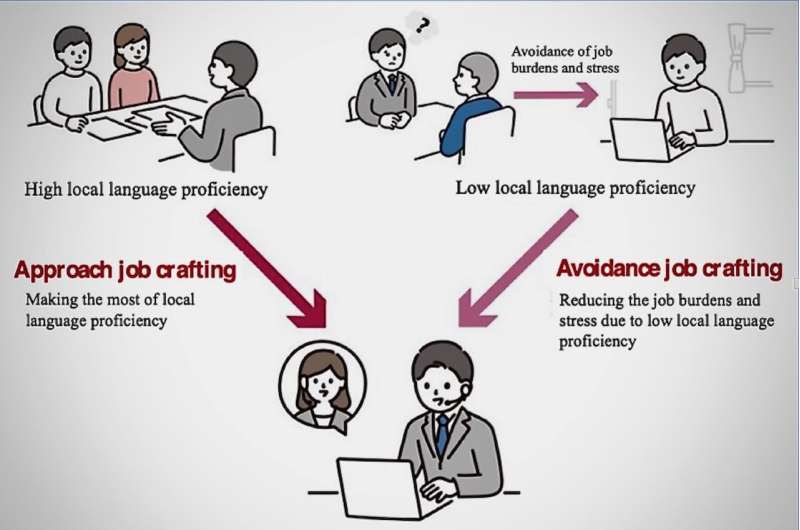This article has been reviewed according to Science X's editorial process and policies. Editors have highlighted the following attributes while ensuring the content's credibility:
fact-checked
trusted source
proofread
Study investigates how language proficiency affected virtual work adaptivity during COVID-19

When the COVID-19 pandemic struck and many organizations shifted to work-from-home, how did English-speaking employees of multinational corporations adapt?
In today's globalized economy, English as a default language is arguably important, but proficiency in the local language can be advantageous for expatriates. Not all, however, are fluent or able to meet linguistic challenges without some sort of coping strategy.
A group of researchers at Kyoto University has now revealed that expatriates who were fluent in local languages could make changes to the content of their assigned duties. The study found that these expatriates adapted through approach job crafting, which is oriented toward higher goals and more challenging tasks.
In contrast, non-fluent expatriates coped through avoidance job crafting to reduce workload and stress.
"We find that when companies provide their non-fluent expat staff with local language support, the tendency to use avoidance job crafting decreases," says corresponding author Ting Liu of the Graduate School of Management.
If expatriates are fluent in the local language, they can adapt by responding proactively to rapid changes when transitioning to a new environment that lacks in-person communication.
In contrast, those who are not fluent are likely to have a passive attitude toward their job in such environments or in situations that require information gathering using the local language.
The 2020 study surveyed 994 expatriates, averaging 32 years of age with varying levels of English proficiency, working across a range of industries in eight countries in Asia, Europe, and the Americas.
The team found that companies' active support in improving their employees' language proficiency can have the positive effect of reducing the chance of adopting avoidance behavior.
"Having expat employees with local language skills—especially when forced to work remotely—may be a powerful asset for an organization," concludes lead author Tomoki Sekine.
The paper is published in The International Journal of Human Resource Management.
More information: Ting Liu et al, Approaching or avoiding? Mechanisms of host-country language proficiency in affecting virtual work adaptivity during COVID-19, The International Journal of Human Resource Management (2023). DOI: 10.1080/09585192.2023.2169075
Provided by Kyoto University





















